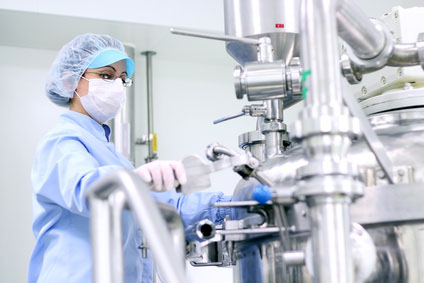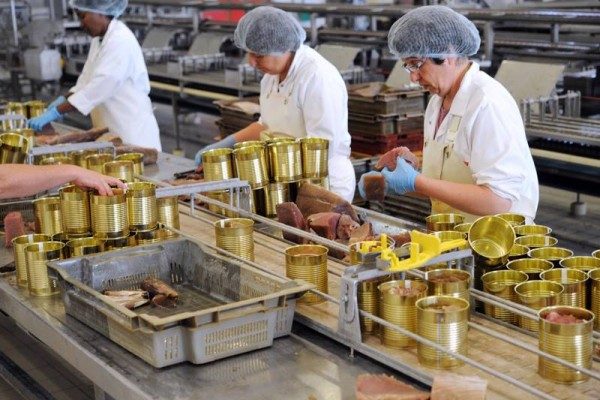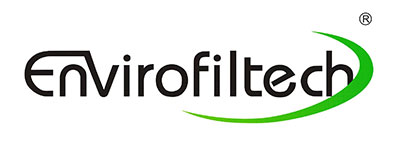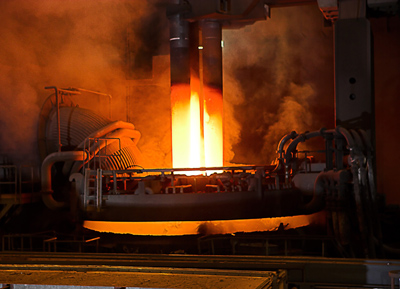Chemical and pharmaceutical industry
In the chemical and pharmaceutical industry, there are dusts which, due to their high value, are recycled into the production process. On recycling, it must be simultaneously ensured that the products are free of foreign substances and that the strict legal requirements in terms of product purity are maintained. All this demands filter media tailored perfectly to the individual requirements of the dust collector to meet the highest standards in filtration efficiency and product purity.
Typical operating conditions
| Temperature | Cont. (°C) | 20°C-250°C |
| Peak (°C) | Orientation to the maximum peak temperature of the fibre polymers used | |
| Dust: | Cosmetics, fertiliser, detergents, pharmaceuticals, pigments | |
| Dust Properties: | Abrasive, chemically aggressive, explosive, fine, coarse, sticky | |
| Dust Source: | Dryer, mills, mixers | |
| Harmful Gases: | H2O, NOx, volatile chemical substances | |
| Cleaning Process: | Pulse jet | |
| Fuels: | Natural gas, oil |
SPECIFIC REQUIREMENTS FOR FILTER MEDIA IN THE CHEMICAL AND PHARMACEUTICAL INDUSTRY:
- Discharge of electrostatic charges
- High abrasion resistance
- High separation efficiency
- Good chemical resistance

Food industry
Filtration processes in the food industry are characterised by strict hygiene rules and strict requirements regarding static electricity. In order to ensure the highest possible purity of the product during the production and processing of food, hygiene and food-grade quality of all the components involved in the dedusting process, play a decisive role. needlona®-filter media used in the food industry are food safe, work under very wet conditions and ensure safe conductivity and discharge of electrostatic charges.
TYPICAL OPERATING CONDITIONS
| Cont. Temperature (°C): | 20-150°C |
| Peak Temperature (°C): | Orientation to the maximum peak temperature of the fibre polymers used |
| Dust: | Coffee, cocoa, flour dust, powdered milk, sugar, yest powder |
| Dust Properties: | Abrasive, agglomerating, explosive, fine, sticky |
| Dust Source: | Dryer, mill, packing station, silo, spray reactor |
| Harmful Gases: | —— |
| Cleaning Process: | Clean-in-place, Jet pulse |
| Fuels: | —— |
SPECIFIC REQUIREMENTS FOR FILTER MEDIA IN THE FOOD INDUSTRY
- Dissipation of electrostatic charges
- High abrasion resistance
- Suitable for clean-in-place systems
- Food safe
with declaration of conformity according to Regulation (EU) No. 10/2011 Annex IV in conjunction with article 15

Cement, Gypsum and lime industry
Product quality and compliance with dust emission limits is a core requirement for dedusting in the cement, gypsum and lime industry. The choice of filter media is of paramount importance in cement kilns where there are high NOx levels due to high combustion temperatures. The needlona®-filter media range offers for each process in the cement, gypsum and lime industry technically sophisticated solutions.
TYPICAL OPERATING CONDITIONS
| Cont. Temperature (°C): | 20-250°C |
| Peak Temperature: (°C): | Orientation to the maximum peak temperature of the fibre polymers used |
| Dust: | Cement, clinker, coal, gypsum, lime, raw meal |
| Dust Properties: | Agglomerating, abrasive, explosive |
| Dust Source: | Blast furnace, chlorine bypass, clinker cooler, coal grinding, mill, rotary kiln, spray dryer, silo, transfer stations |
| Harmful Gases: | H2O, NOx, SOx, HCl |
| Cleaning Process: | Pulse jet, reverse air |
| Fuels: | Natural gas, coal, oil, secondary fuels |
SPECIFIC REQUIREMENTS FOR FILTER MEDIA IN THE CEMENT, GYPSUM AND LIME INDUSTRY:
- High abrasion resistance
- Discharge of electrostatic charges
- High chemical resistance



 العربية
العربية Español
Español Русский
Русский 中文 (中国)
中文 (中国)
